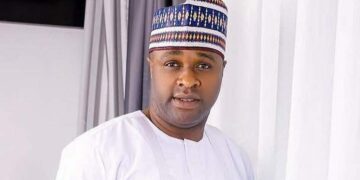
The Federal Government has raised alarm over the worsening shortage of medical professionals across Nigeria, revealing that over 16,000 doctors have migrated abroad in the last seven years, leaving fewer than 40,000 doctors to care for 220 million Nigerians.
This dramatic decline puts Nigeria’s doctor-to-patient ratio at 3.9 per 10,000, far below the WHO recommended 25 per 10,000 and the global average of 17.3 per 10,000.
Speaking at the 7th Annual Capacity Building Workshop of the Association of Medical Councils of Africa (AMCOA) in Abuja, the Minister of Health and Social Welfare, Muhammad Ali Pate, described the situation as a “silent but far-reaching emergency.”
“The exodus represents not just a human resource crisis but also a fiscal loss, as it costs over $21,000 to train one doctor,” Pate stated.
To address this, the FG is engaging with top destination countries under a “train-for-train” reciprocal model, encouraging nations that benefit from Nigerian-trained doctors to invest back into local medical education.
Pate, who himself once migrated in the ’90s, acknowledged the global pull of better opportunities, research environments, and working conditions, but stressed the need to reverse the trend from brain drain to brain gain.
“We’re not trying to stop migration,” he said, “but we’re building a system where they no longer feel the need to leave.”
What’s Being Done:
- Diaspora engagement: Working with regulatory bodies to ease re-entry, create remote teaching and mentorship platforms, and support returning doctors in private practice and academia.
- Domestic reform: Enhancing workplace dignity through housing, better security, and digital tools to reduce isolation and burnout.
- Regulatory upgrades: The Medical and Dental Council of Nigeria (MDCN) is now mapping the diaspora workforce, monitoring recruitment agencies, and pushing for continent-wide regulatory standards.
Pate said a new National Policy on Health Workforce Migration is being designed to protect the dignity of health workers, promote ethical migration, and strengthen the local health system.
“This isn’t the end of migration,” he concluded. “It’s the beginning of smart, ethical, and dignified governance of it.”



















